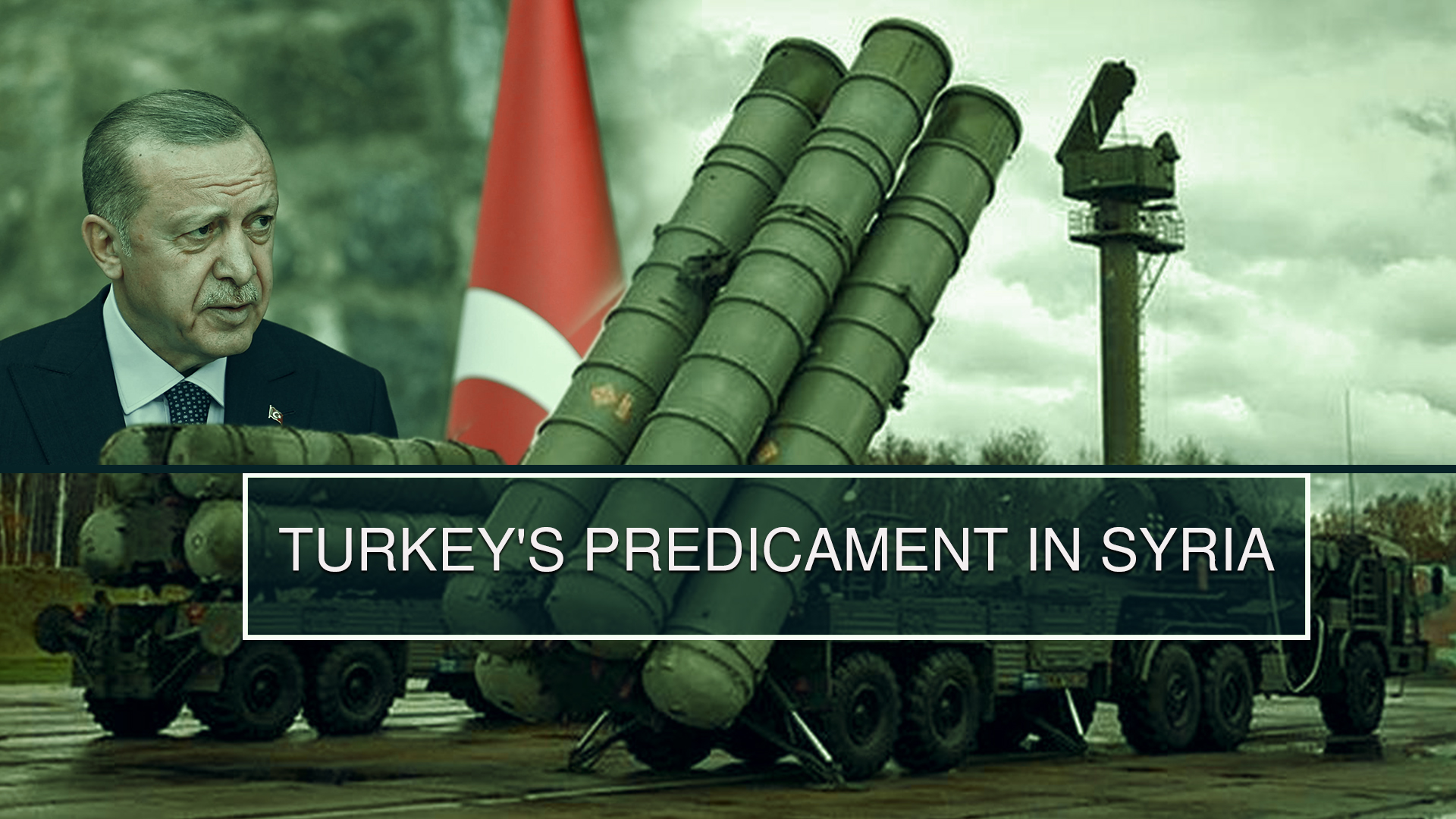Turkey’s predicament in Syria

Turkey’s Erdogan pursued a pragmatic policy with both the US and Russia regarding Syrian crisis that resulted in a Turkish military incursion into northern Syria, started after the liberation of the city of Manbij by the Syrian Democratic Forces (SDF) supported by the US-led Global Coalition to Defeat ISIS.
Turkey launched a military operation named “Euphrates Shield” under the pretext of fighting ISIS in Jarablus and al-Bab regions, where it occupied them. After the agreement with Russia, it launched another invasion on Afrin, which coincided with the victories of the SDF over ISIS. After heroic resistance of the People’s Protection Units (YPG) and Women’s Protection Units (YPJ), Turkey occupied Afrin. Following the announcement of ISIS defeat in 2019 by the SDF backed by the Global Coalition, Turkey launched a third invasion against the areas of Gire Spi (Tel Abyad) and Sere Kaniye (Ras al-Ain) after sudden withdrawal of US forces from the border area, forcing the SDF to conclude an agreement with Russia to protect the area from the Turkish occupation, as Russian forces entered the east of the Euphrates for the first time since the Syrian crisis, and deployed along the M4 Highway between the city of Qamishli and Manbij, and set up military bases in the region. One of the results of the Russian penetration was a collision between the Russian and American patrols as the Euphrates River was the dividing line between the two forces.
The policy pursued by Erdogan caused trouble for the US in Syria. As a member of NATO and an ally of the US, Turkey selected a different path through dealing with Russia in the Syrian crisis, holding meetings in Astana and Sochi, purchasing S-400 system, supporting terrorist factions in Syria such as Hayat Tahrir al-Sham (HTS) and Ahrar al-Sharqiya, attacking the Autonomous Administration areas which are under American protection, and creating strife in the region through exploiting the Kurdish National Council in Syria (ENKS). All these widened the gap between Turkey and the US.
In turn, the Republican and Democratic parties tend not to tolerate Erdogan’s policies that undermine American interests as a result of its purchase of the Russian system and the growth of its relations with Russia. So that, the US activated Countering America’s Adversaries Through Sanctions Act (CAATSA), imposed sanctions on Turkey, canceled the deal of the American advanced F-35 aircraft, and expelled Turkey from participating in the manufacture of parts of this aircraft. Trump pursued the policy of turning a blind eye to Turkey in Syria. while Biden followed the policy of ignoring it.
Biden, who is familiar with global politics when he was serving as US Vice President during Barack Obama’s term, is fully aware of the dangers of Russian and Chinese expansion on the US position as the only pole, and that Turkey has begun to deal with Russia and China without referring to the US, the matter led to the delay in contact between Biden and Erdogan.
Although Biden confirmed that his country will make progress very soon in relations with Turkey, Erdogan remained committed to his approach asserting his country’s intention to proceed with the purchase of the S-400 missile systems from Russia, stressing that “no one will interfere in choosing the types of defense systems we buy,” after Biden refused to meet with him during the UN General Assembly.
Fruitful relations are necessary to advance the interests of the two countries, as Ankara needs Washington’s support in the face of its faltering economy and the continuation of its military presence in Syria. Hence, Turkey can be a major regional partner if it acquiesced to US policy. In the end, the future of the US-Turkish strategic relations will be cleared depending on the results of the meeting of Erdogan with Biden on the sidelines of the G-20 summit in the Italian capital, Rome, on October 30 and 31, 2021, if it happens. Otherwise, Turkey will maintain its relations with Russia while bearing the Russian bombing of the Idlib areas, which will end in concessions and handing over some areas to Russia and may end up leaving Syria and handing over the entire occupied areas to Russia in case it insists on its policy and does not bridge the gap with the US.
The policy pursued by Erdogan is now being negatively reflected on Turkey. Turkey, which yesterday was wandering in Syria and occupying one region after another, is now in a difficult situation that may cause it many woes, especially as it suffers from an economic crisis and a decline in the value of the Turkish lira and its reaching unprecedented levels, in addition to the Russian bombing of Idlib and the military build-up of the regime forces, which threatens a military operation in the region. Here, Turkey is in need of the US support, which requires it to leave the S-400 system, which will anger Russia that will not stand idly by, as Turkey is still occupying parts of Syria.




